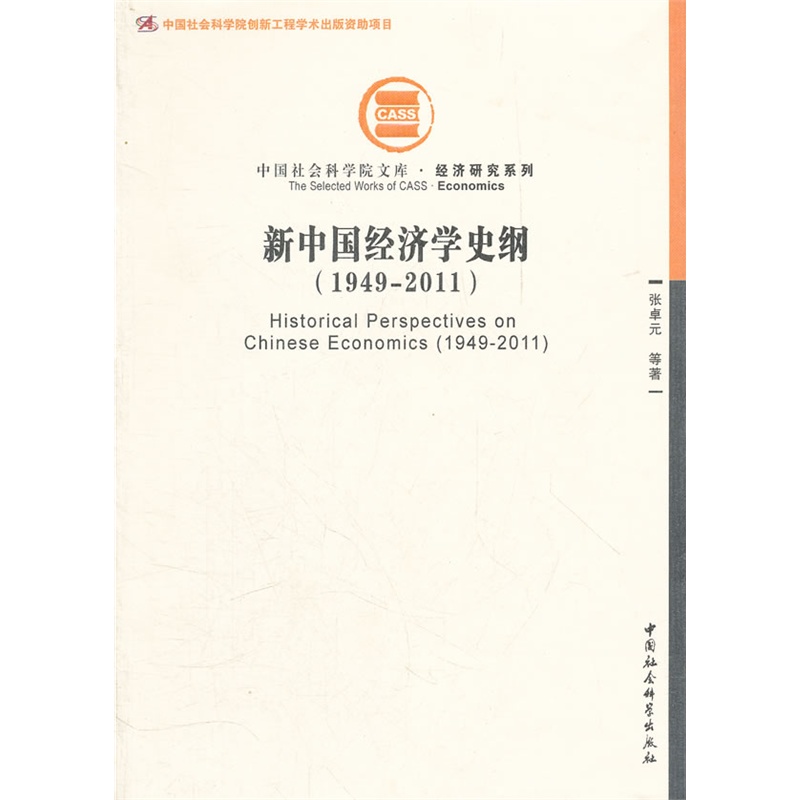Thematic approach to Chinese economic thought

Historical Perspectives on Chinese Economics (1949-2011)
Author: Zhang Zhuoyuan
Publisher: China Social Sciences Press
The dramatic changes to the Chinese economy in the more than six decades since the founding of the People’s Republic of China are unparalleled in world history. Chinese economics has been made innumerable achievement based on these practices. In Historical Perspectives on Chinese Economics (1949-2011), the famous Chinese economist Zhang Zhuoyuan presents the overall landscape of progress and achievements of Chinese economics.
In a general review section, Zhang elaborates on six major achievements of Chinese economics. "With its focus on innovation and the reality, Chinese economics has made full use of the outcomes of modern economics," he writes in detailing the sixth major achievement, innovation in research approaches. Chinese economics "attaches importance to empirical research and quantitative analysis, has the courage to put forward policy suggestions and gradually implement all kinds of evaluation and incentive activities to promote the thriving of the discipline." Zhang also included a list showing how well economists have been represented in several major national award events. For example, among the 61 academicians selected for the Chinese Academy of Sciences' Academic Division of the Philosophy and Social Sciences in 1955, 14 were economists. In 2006, 13 members and 20 honorary members were selected for the Academic Division of Economics at the Chinese Academy of Social Sciences (CASS).
Part of what distinguishes Historical Perspectives, is that, true to its title, it presents a historical account of both Chinese economics and its theories. One of the few works to describe the discipline's achievements in the last six decades thematically, it follows a chronological order, making it read more like a book on the history of thought. Zhang examines many important national conferences and significant events in Chinese economics, often devoting an entire chapter to a single event. Notable topics covered include the First National Symposium on Economic Theories in 1959, the second in 1979, the establishment of the theory of the market economy in 1984, the Bashan Boat Conference and the Mount Mogan Conference in 1985, the Conference on National Medium and Long-term Reform in 1987 and the establishment of Socialist market economy in 1992, among others.
Zhou Shulian, a research fellow from the Institute of Industrial Economics at CASS, commented "Some books have split history by analyzing China's economic structure and growth pattern starting merely from the year 2000. This work, however, connects historical research and thematic research. In addition, it provides both a review of major Chinese economists' thought and the author's own remarks on China's economic research".
One of Zhang's important revelations within the book is that Chinese economics needs its own vocabulary and concepts to discuss economics in China's specific context, and that this system should be supported by economic theories. This book has set a very good example by showing what exactly constitutes "Chinese characteristics", laying foundation for establishing a discourse system for Chinese economics.
Wang Xi is from China Social Sciences Press.
The Chinese version appeared in Chinese Social Sciences Today, No. ,April 2.
Translated by Jiang Hong
Resivsed by Charles Horne

 PRINT
PRINT CLOSE
CLOSE